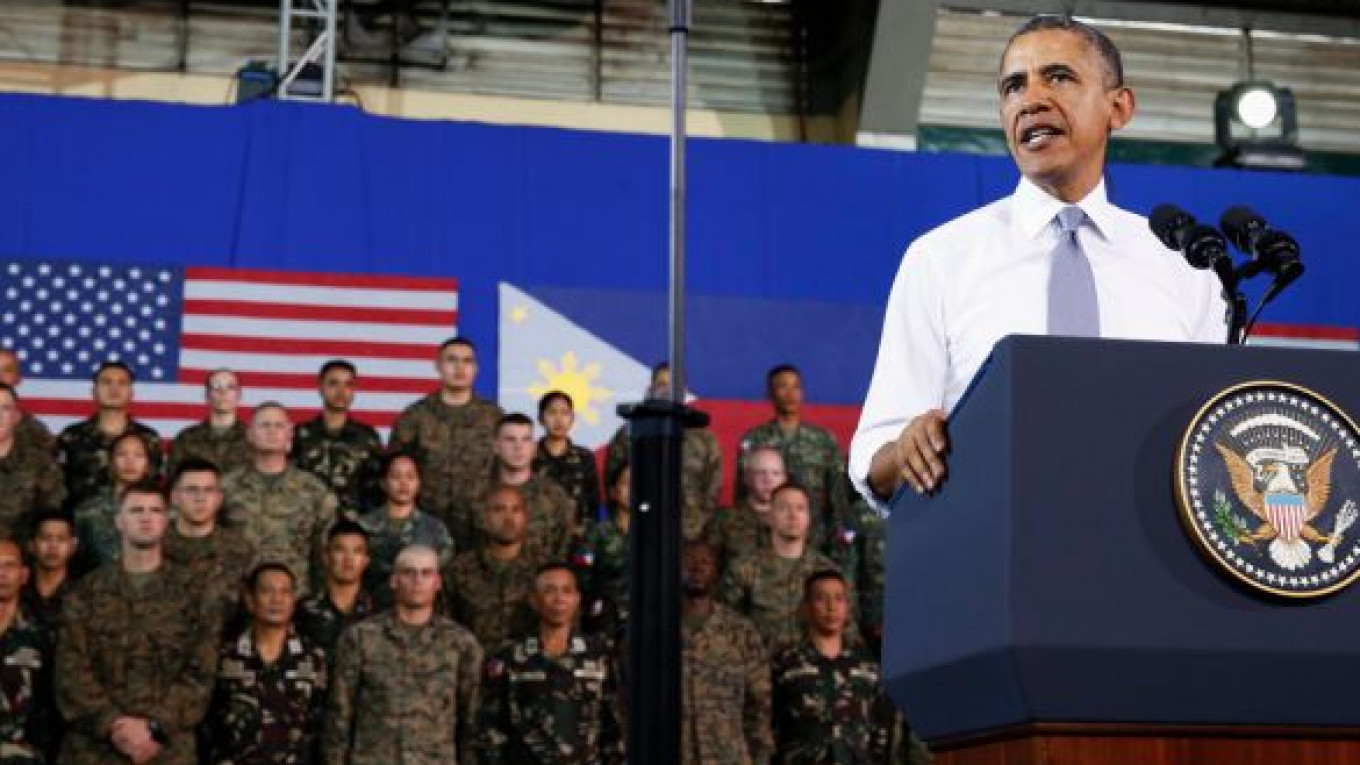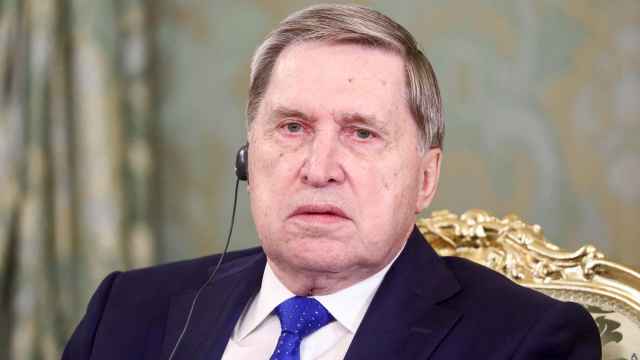U.S. President Barack Obama called his sanctions policy against Russia "calibrated", while his Republican rivals dismissed it a "slap on the wrist," and Russia condemned it as "illegitimate."
As the White House embarks on what experts agree is a cautious approach to penalizing Russia for its intervention in Ukraine, the strategy behind the seemingly light penalties is being cast by Obama administration officials as a slow battle of attrition, chipping away at President Vladimir Putin's credibility while keeping U.S. policy in lockstep with Europe.
The deliberative policy is rooted in Obama's multilateral style of governing and a belief that the U.S. must not overreach in a way that could have costly consequences. But it has left Obama open to criticism from Republicans in Congress who feel he is too weak and not taking the worst East-West crisis since the Cold War seriously enough.
A third round of sanctions issued on Monday targeted seven Russian government officials, including two from Putin's inner circle, and 17 companies linked to Putin allies. Some 38 people have now been targeted for penalties since Russia's military seizure of Crimea in March. The penalties include asset freezes and visa bans.
The Obama administration's method to imposing sanctions is to slowly increase the pain on Putin's inner circle and those businesses that profit from ties to him, to force the Russian leader to back down from the crisis in Ukraine.
But even Obama admits he is not sure how successful his strategy will be.
"These sanctions represent the next stage in a calibrated effort to change Russia's behavior," Obama told a news conference in Manila as he wrapped up a week-long Asia trip. "We don't know yet whether it's going to work."
Accusations that Obama was moving too slowly surfaced again on Monday after U.S. sanctions hit Igor Sechin, a Putin ally who heads Russia's major oil company Rosneft, but steered clear of a more substantial target, Alexei Miller, chief of the powerful Russian gas company Gazprom.
"Until Putin feels the real pain of sanctions targeting entities like Gazprom, which the Kremlin uses to coerce Ukraine and other neighbors, as well as some significant financial institutions, I don't think diplomacy will change Russian behavior and de-escalate the crisis," said Republican Senator Bob Corker of Tennessee.
U.S. officials say Miller and Gazprom could be cited in future sanctions. Given European dependence on Russian natural gas, the U.S. has been slow to penalize Russia's energy industry.
"I think that our goal is to move in a systematic way, in a careful way, in a way that also gives them [Russia] a chance to change their policy and take a different course," U.S. Treasury Secretary Jack Lew, an architect of the sanctions policy, told NBC News. "Our goal here is obviously not to hurt the Russian people. It's to get them to change their policy."
U.S. officials believe it is important to hold in reserve what would be far more consequential, and potentially risky, sanctions against key sections of the Russian economy like energy, defense, financial services, metals and mining and engineering.
These would be launched only under far more dire circumstances, such as a direct Russian military invasion of Ukraine. U.S. officials believe European leaders who Obama has consulted frequently on Ukraine in recent weeks are on board with sectoral sanctions if there is a Russian invasion.
"It's incremental, it's cautious, it's very Obama-esque," said Judith Lee, an international trade lawyer who advises clients on compliance with economic sanctions. "I think the U.S. administration has to walk a very fine line to keep our European allies on board. It's kind of a 'coalition of the willing.'"
While this maintains a united front between the U.S. and Europe, critics say Obama is missing a chance to show global leadership on the Ukraine crisis. But among the president's Democratic allies on Capitol Hill, there is a recognition that Obama can go only so far for now on sanctions.
"This is what the Europeans can agree to at this time," one Democratic congressional aide said, speaking on condition of anonymity.
See also:
A Message from The Moscow Times:
Dear readers,
We are facing unprecedented challenges. Russia's Prosecutor General's Office has designated The Moscow Times as an "undesirable" organization, criminalizing our work and putting our staff at risk of prosecution. This follows our earlier unjust labeling as a "foreign agent."
These actions are direct attempts to silence independent journalism in Russia. The authorities claim our work "discredits the decisions of the Russian leadership." We see things differently: we strive to provide accurate, unbiased reporting on Russia.
We, the journalists of The Moscow Times, refuse to be silenced. But to continue our work, we need your help.
Your support, no matter how small, makes a world of difference. If you can, please support us monthly starting from just $2. It's quick to set up, and every contribution makes a significant impact.
By supporting The Moscow Times, you're defending open, independent journalism in the face of repression. Thank you for standing with us.
Remind me later.






